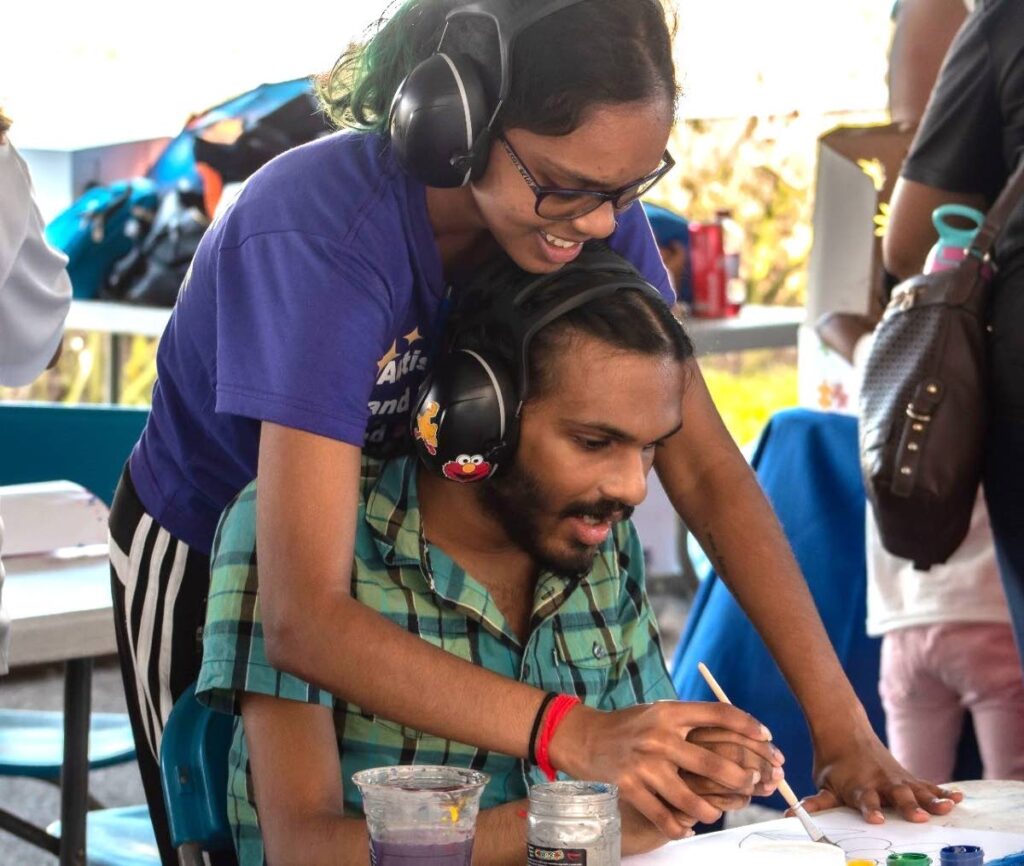The legacy of a non-verbal boy

DR RADICA MAHASE
This week, my nephew, the inspiration behind my autism advocacy, will celebrate his 19th birthday. As we prepare to celebrate him, I use this occasion to reflect on the past years and all the accomplishments and challenges. More importantly, I want these reflections to be a source of guidance and support for other parents and caregivers who are also walking this autism/special-needs path.
The first thing that comes to mind is that autism never goes away. This is something we tend to forget as there is the generally tendency to focus on children and their challenges. We ignore the fact that children grow up to be adults and while the nature of the challenges might change, there will always be challenges. On the one hand, adults who are on the autism spectrum, if they received the appropriate interventions as children, might be able to self-regulate and navigate their challenges in more positive ways. On the other hand, if, as a child, intervention strategies were few and far apart, new challenges, especially behavioural, might develop. Then, even though a child might have received therapies etc, as he/she grows older, there will be different challenges to navigate and these vary according to the individual.
The next important thing is planning for the future. It is imperative that as parents and caregivers, you start to prepare for adulthood a few years before your child reaches 18 years. Financial planning is of course very important, as they will age out of schools and you will realise that there are very few opportunities for development available to young adults. You might find that when your child becomes an adult you will be floundering to find opportunities and you will need to resort to "rainy day funds" to afford private classes, etc.
If your child receives the disability grant from the Ministry of Social Development and Family Services, take note that you have to re-apply as an adult. That means getting two forms of identification so it is a good idea to think about applying for your child’s national ID card earlier rather than nearer to 18 years. Remember that everything takes some time to process so start putting things in place from before, so that the transition to adulthood is as seamless as possible, especially regarding government services. For those who are in the paediatric clinics, start thinking about medical check-ups when your child ages out of the clinics. That means finding a doctor who will have time to become familiar with your child and can continue when they become adults.

Prepare your child to be an adult. I have met so many parents who are over-protective to the extent that they do not give their children the opportunity to learn to do things themselves. I understand the fears and the need to be protective but at the same time, parents/caregivers have to teach their children to do things by themselves. This might mean basic life skills, in some cases for example. The level of independence will of course depend on the level of development but it is important to never underestimate your child’s potential to learn to do things themselves.
Of course, in the midst of all this, remember to never stop fighting for your child. When your child becomes an adult, new battles present themselves. Adolescent is tricky and can pose a whole new set of challenges. Adulthood brings a different set of concerns – what happens now? Is my child able to work and if so, can he/she find a job? How will people treat him/her at work? How can I continue to protect them if they have to go out into the world of work?
In the absence of any kind of affirmative action for the employment of people with disabilities, this is one of the biggest challenges faced by adults on the autism spectrum in TT. There is also the reality that many young adults on the autism spectrum simply cannot function in a work environment that is not sensitised to inclusion. Another reality is the fact that too many young adults did not have access to intervention services when they were children – they did not have equal access to an education and consequently, they have been confined to their homes for years. This makes it difficult for them to function in a world that is not inclusive.
In TT, raising a child with special needs requires parents to be extra strong and resilient. That strength is tested even more when the child becomes an adult. The worst part of all this is, in the majority of cases, it’s not because of lack of effort by parents/caregivers, it is simply because of the inadequacies which exist at all levels in our country.
Sadly, as long as government continues to ignore people with disabilities/special needs; as long as there continues to be a lack of resources; as long as government is disinterested in making resources more equally available; as long as there is a lack of inclusion in an often-cruel society, adults on the autism spectrum will continue to be marginalised in TT.
So, what do we do as parents and caregivers? We keep fighting; we keep advocating for them, we encourage them to advocate if they are capable of doing so; we become their voices if they cannot use their own voices. I am proud that my soon-to-be-19-year-old-nephew, the handsome young man, Rahul, has already created a legacy with Rahul’s Clubhouse, despite being non-verbal. His life, his journey, his challenges, is an inspiration to me and my family and to many others, and I look forward to celebrating another birthday with him. Happy Birthday my baby boy!
Radica Mahase is the founder/director of Support Autism T&T


Comments
"The legacy of a non-verbal boy"